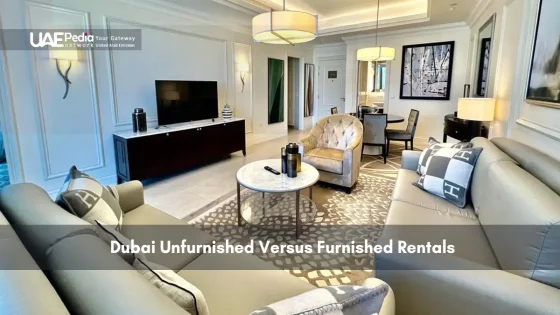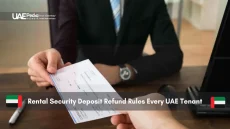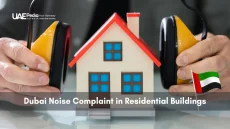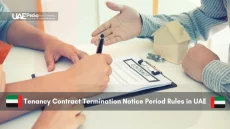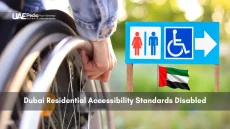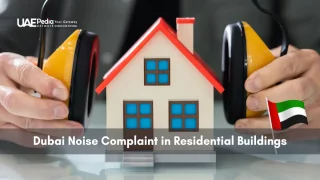What if renewing your tenancy agreement could be as straightforward as ordering a karak tea? In the UAE’s capital, the system designed to protect tenants and landlords often feels more complex than the desert’s shifting dunes—until you know the right steps.
Let’s start with Tawtheeq, the official registration system that gives your lease the same legal weight as Dubai’s Ejari. This digital framework ensures transparency, whether you’re renting a high-rise apartment or a cozy villa. The online renewal process has transformed what once required multiple office visits into a streamlined experience—if you know which documents to prepare.
We’ll walk through everything from required paperwork to hidden cultural nuances. Did you know that timing your renewal correctly can impact everything from visa processing to business license updates? This guide balances practical checklists with insights only locals usually share.
- Tawtheeq vs. Ejari: Similar protections, different emirates
- Digital convenience: Renew from anywhere in 3 key steps
- Pro tips: Required documents and ideal timelines
- Cultural context: Why this process matters beyond paperwork
Understanding Tenancy Contracts and Tawtheeq in Abu Dhabi
Think of your lease agreement as a roadmap for navigating the city’s real estate landscape—clear directions prevent wrong turns. Whether you’re leasing a sunlit apartment near Corniche or a family villa in Khalifa City, every document needs two essentials: clarity and legal backing.
Key Components of a Tenancy Contract
Your agreement isn’t just about rent due dates. It’s a detailed playbook covering:
| Element | Why It Matters | Example |
|---|---|---|
| Lease Duration | Defines stability | 1-year minimum |
| Payment Methods | Avoids disputes | Post-dated checks |
| Termination Rules | Protects both sides | 90-day notice |
Local platforms like Property Finder show how standard lease agreements balance flexibility with structure.
The Role of Tawtheeq in Securing Rental Agreements
This digital registry works like Dubai’s Ejari but with its own Emirati flavor. By registering your contract here, you’re not just filing paperwork—you’re activating legal safeguards. Landlords gain proof of occupancy, while tenants lock in terms that can’t be altered without mutual consent.
During renewal periods, updates to rent amounts or conditions get stamped into the system. One expat family shared how Tawtheeq helped them renegotiate maintenance responsibilities smoothly: “It felt like having a referee ensuring fair play.”
The result? Transparent deals where everyone knows the rules—and the real estate market thrives on trust rather than handshake deals.
Navigating the abu dhabi rental contract renewal process
Renewing your home’s legal paperwork shouldn’t feel like deciphering ancient scrolls—let’s simplify the journey. The digital portal turns what used to require endless queues into a 15-minute task. Just like ordering groceries through a delivery app, success lies in having the right ingredients ready.
Step-by-Step Guide to Tawtheeq Renewal Online
First, log into your Tawtheeq account—think of it as your digital real estate wallet. Upload scanned copies of your Emirates ID and current lease agreement. The system auto-fills 80% of the form using existing data, leaving you to verify details like updated rent amounts or occupancy changes.
Payment happens through a secure gateway—credit cards only. One resident joked: “It’s smoother than booking concert tickets!” You’ll receive an SMS confirmation within 24 hours. Keep this message—it’s your proof until the updated contract arrives via email.
Required Documents and Important Timelines
| Document | Purpose | Notes |
|---|---|---|
| Emirates ID | Identity verification | Front/back scans |
| Tawtheeq account | Portal access | Reset password early |
| Contract number | System reference | Find on current lease |
| Letter from Work* | Occupancy changes | Company letterhead |
*Required only if adding/removing tenants. Submit everything at least 30 days before expiry—late renewals risk service interruptions. Landlords can’t increase charges once you’ve started the digital process.
Practical Tips for a Smooth Renewal
Double-check document expiration dates—your Emirates ID must be valid for six months post-renewal. Enable SMS notifications in your account settings to track progress. One family learned the hard way: “Our internet cut out during payment—always screenshot confirmation pages!”
Bookmark the portal during non-peak hours (weekday mornings work best). With everything prepped, you’ll spend less time on admin and more time enjoying your home in this vibrant city.
Leveraging Online Platforms for Efficient Contract Renewal
Imagine updating your lease terms with the same ease as streaming your favorite show. Modern digital tools have turned property agreements into tap-and-go experiences. Let’s explore how these services keep your real estate matters organized and stress-free.
Renewing Through the Official Tawtheeq Portal
The Tawtheeq platform acts like a digital notary for your home. Upload your Emirates ID, verify updated terms, and click submit—it’s simpler than ordering groceries online. One tenant shared: “I renewed during my coffee break while waiting for a Zoom meeting to start!”
Key advantages:
- 24/7 access from any device
- Automatic rent increase calculators
- Instant email/SMS confirmations
Utilizing Dari for Lease Contract Updates
Dari serves as your property management hub. Landlords can propose adjustments through the system, while tenants review changes like editing a shared document. The workflow:
- Log in using UAE Pass credentials
- Check highlighted updates in red/green
- Approve or request modifications
This service reduces paperwork mountains to digital molehills. A property owner noted: “Last year’s file cabinet chaos is now three clicks and done.” Always double-check notification settings—missed alerts are the #1 hiccup users report.
Managing Renewal Fees and Legal Considerations
Navigating fees and regulations feels like mastering a metro card system—swipe correctly, and everything flows. Let’s break down costs and rules so you avoid unexpected detours.
Breaking Down Costs and Compliance
The standard Tawtheeq renewal fee sits at AED 50—about the price of two specialty coffees. But watch for updates: the Department of Municipalities and Transport adjusts charges like seasonal market trends. One property owner shared: “Last year’s fee stayed steady, but I always check the portal first.”
Legal protections work both ways. Owners can’t hike rents mid-term without mutual consent, while tenants must maintain the property. These dhabi tenancy laws create balance—like traffic lights guiding a busy intersection.
| Fee Type | Typical Cost | Legal Triggers |
|---|---|---|
| Renewal Processing | AED 50 | Portal submission |
| Contract Changes | AED 100+ | Mutual agreement |
| Court Filing | AED 300+ | Breach of terms |
Property management agreements add layers. Some firms bundle fees into service packages—always request itemized lists. A recent case saw tenants successfully dispute hidden charges by citing their signed contract terms.
Cancellations require clear paper trails. Valid reasons include repeated late payments or unauthorized renovations. Courts step in when communication fails, issuing orders that bind both parties. One legal advisor noted: “Document every conversation—it’s your best defense if things escalate.”
Before renewing:
- Compare current fees against official websites
- Review property management agreement clauses
- Save payment confirmations for three years
Smart preparation turns legal jargon into actionable steps. Now you’re ready to handle fees and rules like a local market pro—no law degree required.
Wrapping Up Your Rental Renewal Journey
Like solving a desert puzzle under starlight, managing your housing paperwork becomes effortless once you know where the pieces fit. We’ve mapped the terrain together—from digital portals to fee structures—so you can navigate with the confidence of a seasoned explorer.
Remember these essentials: Timely document prep turns renewal into a tap-and-go task. Platforms like Tawtheeq and Dari slash wait times while locking in legal protections. Keep that Emirates ID current and bookmark the Department of Municipalities and Transport page for updates.
Facing questions? The Tawtheeq helpdesk (+971 2 418 0000) shines brighter than a Friday fireworks show. Share your stories with fellow residents—every tip helps newcomers avoid hidden sandtraps in the property landscape.
Need a refresher? Uaepedia.net stands ready like your favorite café barista—armed with fresh insights and warm guidance. Now grab those keys, secure your digital trails, and enjoy the view from your home sweet Emirati home.
Tawtheeq is the official system managed by the Department of Municipalities and Transport to register and validate tenancy contracts. It protects both landlords and tenants by ensuring terms comply with local laws, making disputes easier to resolve through documented proof of agreement.
You’ll need your Emirates ID, passport copy, existing Tawtheeq contract, and a recent utility bill. Landlords must provide an ownership certificate. Keep digital scans ready if renewing through the online portal or apps like Dari for faster processing.
Yes! Abu Dhabi’s digital services allow renewal via the Tawtheeq portal or the Dari platform. Upload documents, agree on updated terms with your landlord, pay fees electronically, and download your new contract—no in-person visits required unless special conditions apply.
Fees typically total 3% of the annual rent, split between tenant and landlord. For example, if your rent is AED 100,000, you’d each pay AED 1,500. Confirm charges upfront to avoid surprises, as late renewals may incur penalties.
Begin negotiations 90 days before your contract ends. This gives time to discuss rent changes, gather paperwork, and complete Tawtheeq registration. Waiting risks automatic eviction notices or temporary rate hikes under Abu Dhabi’s tenancy laws.
First, check if they’ve provided 12 months' notice as required. If not, file a case with the Rental Dispute Committee. Courts often side with tenants seeking renewal unless the owner proves plans for major renovations or personal use—always get such claims in writing.


